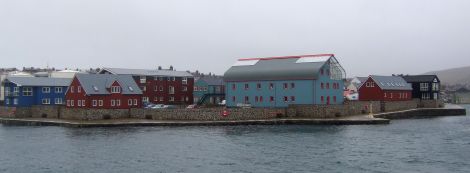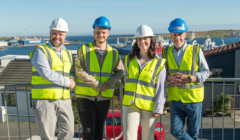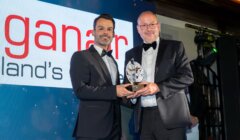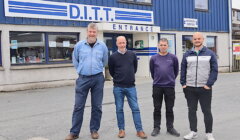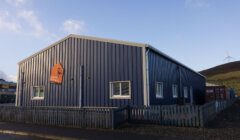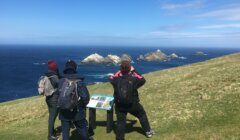Council / Report shows how Shetland’s economy ‘flat-lined’ during last decade
THE COUNCIL’s development committee has “work to do to get Shetland back to where it needs to be”, according its chairman councillor Alastair Cooper.
His words referred only in parts to the impact of the Covid pandemic as well as the consequences of Brexit, but more principally to the various economic statistics presented in a Shetland Economic Accounts 2017 document, pulled together by the Fraser of Allander Institute.
Describing the isles’ performance between 2001 and 2017 in some detail the study draws a picture of Shetland’s economy that Cooper described as “flat-lining”.
Some of the key figures are:
• Shetland’s GRDP (gross regional domestic product) in 2017 was £584.4 million which accounts to £25,442 per person, about half a per cent higher than the Scottish average;
• Between 2011 and 2017 GRDP increased by £47.8 million,
• Average household income is £41,322, a gross increase of 7.5 per cent but a reduction in real term of three per cent over the period;
• The industry sectors with the highest output are aquaculture and fish processing;
• Fishing and aquaculture are the two largest export industries;
• Following changes to the methodology, Shetland now receives more from the exchequer than it pays in taxes. The deficit has been estimated to have been £129.5 million in 2017, whereas in 2011 the isles’ net contribution towards the exchequer had been calculated at £84.3 million;
• With regards to Covid, the Fraser of Allander Institute estimated that as many as 575 jobs could have been lost in Shetland had it not been for government intervention.
Following a number of questions from councillors there was little debate of the content of the report.
Cooper said: “I think it is fair to say that we flat-lined in the period from 2011 to 2017, but that said one has to bear in mind that we had a period of austerity and a period where the oil industry was contracting here in here Shetland, and the fortunes of the fishing industry were perhaps not all that good.”
Become a member of Shetland News
Referring to Covid, he added: “I think there is a lot that needs to be done to re-energise the local economy and get Shetland back where it needs to be.
“I advocate a high wage economy where folk have money to spend and to enjoy rather than having to decide on which of the essentials the wages go each week.
“In that regard I see a very difficult period ahead for the development committee in trying to sustain and to grow our economy.”
Become a member of Shetland News
Shetland News is asking its readers to consider paying for membership to get additional perks:
- Removal of third-party ads;
- Bookmark posts to read later;
- Exclusive curated weekly newsletter;
- Hide membership messages;
- Comments open for discussion.
If you appreciate what we do and feel strongly about impartial local journalism, then please become a member of Shetland News by either making a single payment, or setting up a monthly, quarterly or yearly subscription.






